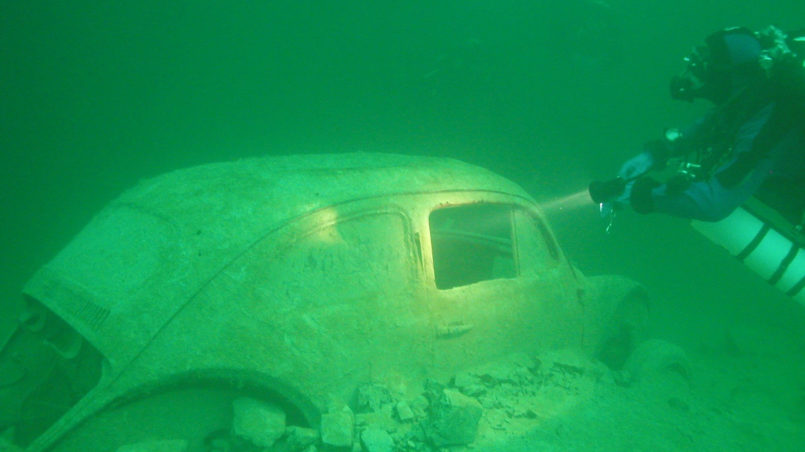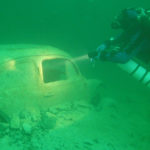Innovation Policy: Swim or Drown

Many people think that money grows on trees somewhere. Politicians pick it and distribute it. Therefore political discussions mainly centre on the question of who receives a certain share of the pie. And this eventually bakes by itself.
The added value of a society, the productivity, the creation of increases of value: without these we would all not have a livelihood. Because it is not money that keeps us but rather the added value that our workers create which bestows a value on money. It is not our social system that looks after the needy, the pensioners, the sick or the unemployed. Austria’s employees create the added value which is redistributed to the others.
The low wage countries as competition
We all like to buy bargains. But we do not want to share the standard of living in the countries whose goods we buy cheaply. How is it that we can enjoy a higher material prosperity without having to work more and harder?
Our high productivity, as a result of the much-maligned automation and the ability of people in Austria to produce products which are particularly in demand and therefore high-priced, provide a standard of living for us that too many take for granted – and among these, many who are personally not even a part of the world of work. But caution is called for:
The low wage countries as a possibility
If we, on the other hand, implement new ideas daily, if we constantly create innovative products and procedures, then we will deserve the constantly newly carved out leading edge and not only we will be the winners.
The danger: we lose the connection
The innovation which is currently ongoing is considered a danger by some. But the opposite is true: danger only exists when we do not contribute from the front row.
- Networked manufacturing, known in the USA as the “Internet of Things” and to us, following an intitiative of the – here, by way of exception not passive – German federal government, “Industrie 4.0”, is a possibility to bring production to us. If we miss this development or even fight it, others will exploit the advantages of this innovation for themselves. Where are the concrete initiatives of the Austrian federal government? Staging does not help us!
- The trend towards electro-mobility is a huge opportunity but the great risks are not truly appreciated. Austria may not have its own brand of car but we are living to a great extent from the production of automobiles. The development and manufacture of combustion engines is of particular importance. The world’s largest and best development centre for petrol and diesel engines is located in Graz and, in the manufacture of engines, in particular diesel engines, Austria is proportionately among one of the world’s best.
This means, however: we are dependent on the current technical level; according to some estimates, even 450,000 jobs are dependent. If we consider Austria’s economy as a whole, this sum is not unrealistic.
If the dream of our environment minister became reality overnight and from the following day everyone only bought e-cars, this would be a dark day for our economy and, as such, for the state as a whole. We are on the point of becoming the losers in the electrification of automobiles and we are not alone:
The demonisation of combustion engines is, from an economic perspective, currently dangerous. If I may: while we should be urgently seeking ways to safeguard a production share of future car technology, I would rather our car dealers sold normal cars which are as clean as possible for some time and that we, in the meantime, prepare ourselves for the effects of the technical change as soon as possible.
These consequences have to date not even been highlighted to some degree and it is high time that they were:
Let us look at the job description of a car mechanic: e-cars require hardly any maintenance of their engines and this is the main work of today’s service technician. If we act as if nothing happened, young people would start an apprenticeship for jobs which are no longer required to the same extent and many of them will ultimately end up on the street although they learned by heart the inner workings of the obsolete combustion engine. The sector needs a plan for the future, the apprenticeship for car mechanics has to be expanded by elements which will offer young people the possibility to change, namely a combination apprenticeship – how about with IT, energy technology and mobility? Such a qualification could give apprentices the opportunity to work on the future, IT-dependent, electrical cars but also to change to other sectors of the economy.
We are almost like a man in deep waters who is too lethargic to move. He ends his swim movements and drowns. Which is why I call on politicians to move more strongly!
N.B: Austria produces the majority of engines – 450,000 jobs are dependent on the automobile industry.
Credits
| Image | Title | Author | License |
|---|---|---|---|
 |
Autowrack | Achim R. Schloeffel | CC BY-SA 3.0 |
